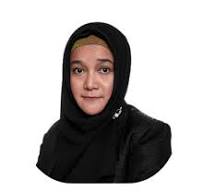
Course Coordinator and Principal Instructor
Dr. Hendra Kaprisma, S.Hum. (Universitas Indonesia)
Expertise: Literature Studie

Course Category : Professional Development
Intended Audience
This is designed for a diverse audience, including managers, human resources professionals, team leaders, global business practitioners, entrepreneurs, consultants, educators, expatriates, and individuals interested in cultural competence. The course provides essential insights and strategies for effectively navigating the challenges and opportunities presented by multicultural workplaces. Whether a manager seeking to lead diverse teams, an entrepreneur engaging with global markets, or an individual striving for cultural sensitivity, this course offers valuable tools to enhance communication, collaboration, and leadership within cross-cultural environments. Through a combination of theoretical knowledge and practical applications, participants will gain the skills needed to thrive in today's interconnected and culturally diverse profess.
Course Aim:
The aim of the “Cross-Cultural Management in the Workplace” course is to equip participants with a comprehensive understanding of the complexities and nuances of intercultural interactions within professional settings. By exploring cultural dimensions, communication styles, negotiation strategies, conflict resolution techniques, and leadership approaches across different cultures, this course aims to enhance participants' cross-cultural competence and empower them to successfully manage and lead in diverse work environments.
Main Topics:
Course Design Approach:
The course follows a self-paced activities. It incorporates various teaching methods, including problem-based learning, group discussions, and individual research. The course material is designed to facilitate critical thinking and foster deep understanding of the subject matter. The scope of the course encompasses learners with the skills and insights needed for effective cross-cultural management in diverse workplace environments.
Mode of Instruction:
The course instruction is delivered asynchronous methods, involved group discussion, including components for self-paced study and resource access.
Technologies to be Used:
The course will leverage a variety of technologies to enhance the learning experience, including a user-friendly learning management system (LMS) for content delivery and assessment, video hosting platforms for engaging lectures, discussion forums for interactive peer discussions. Additionally, online quizzes, and feedback mechanisms will be integrated to facilitate continuous assessment and communication.
Learning Objectives
By the end of this course, learners should be able to:
Learning Activities
Assessment in this course will be multifaceted, encompassing both individual and collaborative activities that mirror real-world challenges. Formative assessments will include quizzes at the end of each module to gauge understanding, as well as reflective journal entries to encourage personal insights and growth.
Case analyses of cross-cultural workplace scenarios will assess participants' ability to apply learned strategies to complex situations. Peer reviews will encourage constructive feedback and the development of cultural sensitivity. Summative assessments will consist of a comprehensive final assesment requiring participants to devise a cross-cultural management strategy for a hypothetical workplace scenario, showcasing their proficiency in navigating multicultural environments.
Assessment Strategies
Assessment in the course on Cross-Cultural Management in the Workplace will encompass a range of strategies to ensure comprehensive skill development and understanding. Formative assessments, including quizzes, short reflections, and interactive discussions, will provide ongoing feedback and encourage engagement with the course content
Assessment in the course on Cross-Cultural Management in the Workplace will encompass a range of strategies to ensure comprehensive skill development and understanding. Formative assessments, including quizzes, short reflections, and interactive discussions, will provide ongoing feedback and encourage engagement with the course content
Language of Instruction
English

Dr. Hendra Kaprisma, S.Hum. (Universitas Indonesia)
Expertise: Literature Studie

Dr. Tamara Adriani Salim, S.S., M.A. (Universitas Indonesia)
Expertise: Library and Information Science

Dr. Untung Yuwono, S.S. (Universitas Indonesia)
Expertise: Linguistics

Damar Jinanto, M.Hum. (Universitas Indonesia)
Expertise: Cultural Studies

Muhammad Hanif Inamullah, M.Si. (Universitas Indonesia)
Expertise: Library and Information Science